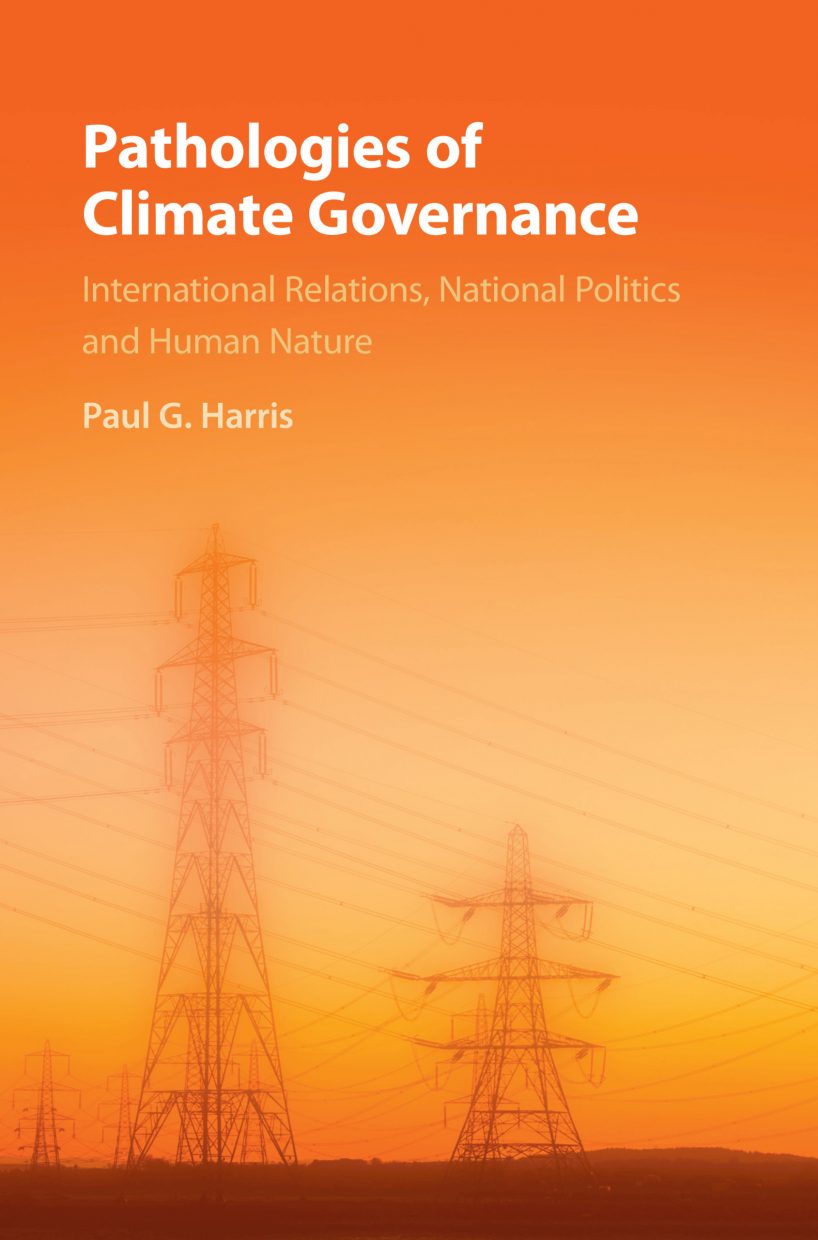A new moment for climate governance: Can President Biden save the world from climate change?
Within hours of assuming office, President Joe Biden began taking steps to reverse his predecessor’s devastating policies on climate change. He returned the United States to the Paris Agreement, declared that his administration would cooperate with other countries to tackle the problem, and pledged that Americans would substantially cut their greenhouse gas pollution. He issued decrees to bring the whole of the US government to bear on combatting climate change, hired a former secretary of state and other prominent former officials to lead the charge, and created a dedicated climate office within the White House to provide coordination. Will President Biden’s actions be enough to put the United States on a solid path to decarbonization, let alone resolve the global climate crisis?
Despite action around the world to reduce the use of fossil fuels and shift to alternatives, the crisis is growing much worse. The pollution that is causing global warming and other manifestations of climate change has been increasing year on year for decades. The exception was a decline in emissions last year as a consequence of the global economic decline brought on by Covid-19. However, many countries that had started to wean themselves off fossil fuels, not least China (far and away the largest source of greenhouse gas pollution), are once again turning to coal as a cheap way to power economic growth in difficult times. Others have loosened environmental protections to stimulate their economies. Indeed, by December 2020, global carbon dioxide emissions were higher than they were at the start of the pandemic. By March 2021, the concentration of carbon dioxide in the atmosphere reached 418 parts per million, the highest in at least 3 million years.
Global warming has already reached 1.2°C above historical averages, putting it on pace to blast through the Paris Agreement’s aspiration of limiting global warming to 1.5°C. Even if fully implemented – a very unlikely prospect – all of the original pledges made by governments around the world to fulfill the objectives of the Paris Agreement would result in global warming of well over 3°C by the end of this century.
Climate scientists tell us that carbon dioxide emissions need to fall by nearly half by 2030 (compared to 2010) if global warming is not to exceed 1.5°C. However, the United Nations reported last month that even if recent, more ambitious pledges by governments are fulfilled, cuts in emissions will amount to less than 1 percent in 2030 (compared to 2010). That tiny 1 percent would be the sum total of four decades of international efforts to reduce emissions by at least half.
There is little prospect that the world’s addiction to fossil fuels will abate as quickly as President Biden hopes. Nearly 80 percent of the global economy is still powered by fossil fuels. Biden has still-powerful domestic political forces to contend with. Despite renewable energy now being cheaper than fossil fuels, entrenched interests will do all that they can to slow the inevitable movement toward decarbonization. Exploiting America’s pluralistic political system to weaken action on climate change has been the lucrative strategy of the petroleum industry and the Republican Party for decades.
On top of national politics, Biden must contend with very powerful forces at international and individual levels that also resist more robust action on climate change. The international system is simply not well suited to bringing countries together for common cause. National governments are inclined toward promoting their countries’ narrowly perceived short-term interests, often meaning the interests of powerful economic or political actors.
Limiting global warming requires drastic action to cut greenhouse gas emissions. Yet, most of the countries that produce the majority of greenhouse gas pollution are at best taking a slow path toward decarbonization. American greenhouse gas emissions are falling gradually, but China’s are still on the rise. Europe will reduce its emissions significantly in coming years, but much of the developing world is set to go in the opposite direction.
What is more, psycho-social forces mitigate against drastic action. People are inclined naturally to consume things, and powerful economic and social forces capitalize on that inclination at every opportunity. Even President Biden is hoping to stimulate the US economy out of its Covid-19 doldrums so that Americans can return to their spending ways. Around the world other governments are trying to do the same. The more that citizens consume to help their countries recover economically from Covid-19, the more greenhouse gas pollution will result and the more global warming there will be.
It is good news for the health of our planet that Joe Biden is now the US president. Yet, for every bit of good news about efforts to govern climate change more effectively, whether in the United States or around the world, there is always another warning of impending catastrophe, such as distressing confirmation recently of greenhouse gas emissions from melting permafrost that may result in an unstoppable cycle of global warming, further emissions and yet more warming that will lead to perpetual climate chaos.
The climate challenge that President Biden and his counterparts around the world are taking on is forbidding indeed. The more that Biden can accomplish the better. But he will not live to see climate change come to a halt. His grandchildren, along with all of the children around the world today, are very likely to be adults on a planet that has warmed twice as much as it did during the president’s lifetime. They will witness the profound environmental and human suffering that such conditions presage.
Paul G. Harris (www.paulgharris.net) is the Chair Professor of Global and Environmental Studies at the Education University of Hong Kong. He is author and editor of many books on global environmental and climate change politics, policy and ethics, most recently Climate Change and Ocean Governance: Politics and Policy for Threatened Seas (Cambridge University Press, 2019) and Pathologies of Climate Governance (Cambridge University Press, 2021)






